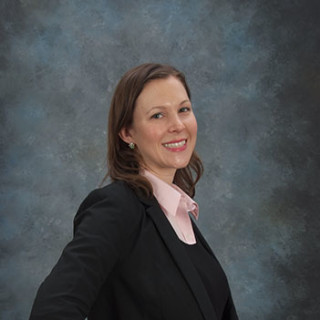
I love Christmas. This passion builds beyond the basics of celebrating Christ’s birth with gifts under a tree. I embrace it all; strolling through decorated shopping centers while sipping peppermint mochas, the emotionally-manipulating commercials, cheesy repetitive music, and buying a real tree despite my allergies to pine. I even (secretly) love working at Christmas time.
Oh sure, I may complain about the long shift hours, increased inefficiency of the ER, and general unfairness that comes with the territory of being an intensivist in its entirety. But I have come to recognize that, beyond the stale cookies families bring (more likely out of pity rather than kindness) and the plastic stickers on patient doors in attempts to bring some form seasonal acknowledgement, I have a sense of peace that is amplified during this time.
Recollecting my first Christmas as an intern, I was working in a small community hospital ICU in Massachusetts and eager to take on the role of knight in shining armor. What ideally in my head should have happened that night in the ICU (me dramatically performing CPR in slow motion while Silent Night played in the background) and what actually happened (I contracted the Norwalk virus from one of the many affected employees and patients, threw up everywhere, and was sent home where the GI festivities continued) put me in my place and confirmed that I was indeed no hero and was actually quite dispensable.
Several years and holidays later, I have yet to be that hero doctor who is able to miraculously cure a patient, giving that oh-so magical gift of preserving life to a grateful family for Christmas.
Usually, the opposite occurs, and I am assisting a family through the process of grieving and defining care goals. I don’t discount this extremely important role of attempting to determine futility, but at times it creates a bit of disappointment. Intensivists (and probably most ER physicians and surgeons) love exciting, dramatic problems and presentations, and, even more so, we love dramatic treatments and responses. Death is not the goal we had in mind when we signed up for medical school “to help people,” and allowing a person to pass naturally with dignity is, well, kind of boring. But when it happens at Christmas time, the holiday I can’t get enough of, it takes on a different tone altogether, and I feel a sense of duty to extend that peace Christmas brings.
Obviously not everyone partakes in celebrating the Christmas season with equal enthusiasm (and of course some do not celebrate it all), but regardless, we do share a common theme that unifies us physicians and pretty much anyone in the medical field: the sacrifice and simultaneous privilege to have the opportunity to care for others. Though this is regardless of the season or holiday, medicine is one of the few professions that creates a situation where strangers share vast amounts of personal information in a short time period. The ICU intensifies (no pun intended) the relationship, since the nurses and physicians naturally spend more time with the patient and families. Christmas further magnifies this, and deeper bonds are formed quicker. Thus, the patient joins the medical team in celebrating Christmas in the hospital as they too forgo time home with their loved ones.
We physicians not only ignore our families, the very people holidays are supposed to be shared with, we often do it with little thanks and no reward. This paradox, knowingly and unknowingly, is understood amongst each other and forms a sort of club. Because, only those who work in healthcare will ever understand how it feels to leave your 4 year old and presents under the tree to care for the frequent-flyer alcoholic, who spits in your face and will never thank you or likely even remember the judgement-free treatment you provided. Christmas serves as a reminder to kindle that peace, joy, passion — whatever it was that fueled the decision to care for others. And those of us who truly love what we do come back to do it again, over and over, regardless of varying levels of empathy, regardless if we see ourselves as the hero we thought we would become, regardless of the holiday.
What experiences have you had, training and beyond, working Christmas in the hospital? How does Christmas, or any holiday, affect your relationships with your colleagues, family and patients?
Dr. Zeman is a mother to three, a wife to one, an intensivist practicing in the Phoenix metro area, and as of now, also a writer.







